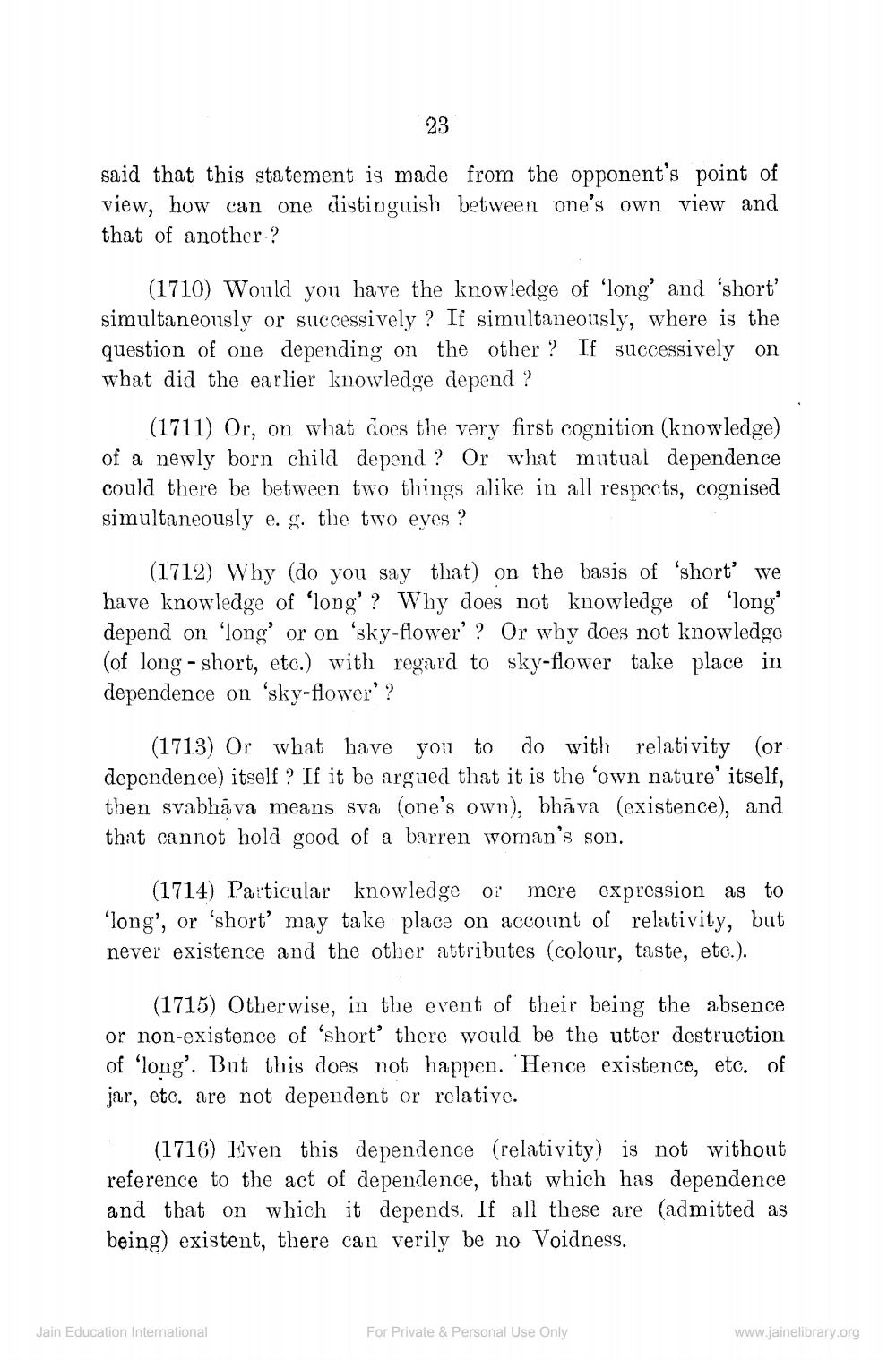________________
23
said that this statement is made from the opponent's point of view, how can one distinguish between one's own view and that of another?
(1710) Would you have the knowledge of 'long' and 'short' simultaneously or successively? If simultaneously, where is the question of one depending on the other ? If successively on what did the earlier knowledge depend ?
(1711) Or, on what does the very first cognition (knowledge) of a newly born child depend? Or what mutual dependence could there be between two things alike in all respects, cognised simultaneously e. g. the two eyes?
(1712) Why (do you say that) on the basis of 'short' we have knowledge of 'long'? Why does not knowledge of 'longo depend on 'long' or on 'sky-flower'? Or why does not knowledge (of long - short, etc.) with regard to sky-flower take place in dependence on 'sky-flower'?
(1713) Or what have you to do with relativity (or dependence) itself ? If it be argued that it is the ‘own nature' itself, then svabhāva means sva (one's own), bhāva (existence), and that cannot hold good of a barren woman's son.
(1714) Particular knowledge or mere expression as to 'long', or 'short may take place on account of relativity, but never existence and the other attributes (colour, taste, etc.).
(1715) Otherwise, in the event of their being the absence or non-existence of 'short there would be the utter destruction of 'long'. But this does not happen. 'Hence existence, etc. of jar, etc. are not dependent or relative.
(1716) Even this dependence (relativity) is not without reference to the act of dependence, that which has dependence and that on which it depends. If all these are (admitted as being) existent, there can verily be no Voidness.
Jain Education International
For Private & Personal Use Only
www.jainelibrary.org




